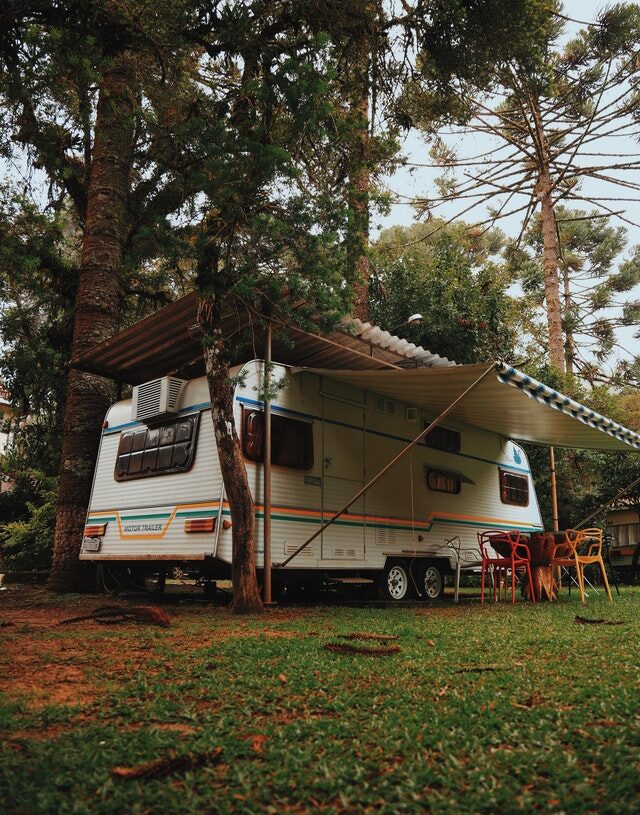Planning your first RV adventure can be exciting and overwhelming. Make sure you pack these essentials for your first camping trip on the road.
Pack Your Equipment
While you should always have a basic first aid kit in your vehicle, it’s a great idea to pack additional first aid supplies and tools for the road when going on a longer camping trip. Your disaster tools and equipment can include things like a basic tool kit with various types of screwdrivers and pliers, seatbelt cutters, a jump starter, jumper cables, a tire plug kit, a tire pressure gauge, a portable air compressor, traction mats, flares, foldable warning triangles. In addition to what you might need on the road for your RV, bring along survival tools for yourself while camping like a fire starter, water purification kit, solar charger, hand-crank flashlight, compass, and survival whistle. You can organize and separate first aid supplies from RV equipment and keep everything you need in a designated bag or storage space that is easy to access.
Prepare Your Food
Once your equipment and supplies are packed, make sure you prepare food and drinks for the road and your campsite. Consider if you will have access to a refrigerator on board or if you will be using a cooler on the road. Popular foods to bring on an RV road trip are typically premade foods or food that doesn’t require much temperature control. Consider packing granola, cereal, bagels, and muffins along with fresh fruit, premade smoothies, and even hard-boiled eggs. Avoid anything that might upset your stomach. For when you are at your campsite, you may be able to cook more food with a small appliance. Since you won’t have access to a full-size kitchen, it’s a good idea to stock your RV with smaller size containers and space-saving kitchenware.
Plan Your Route
Once you are packed and ready to go, it’s time to review your route. Try mapping out a few different ways to get to your destination in case of road closures, inclement weather, or heavy traffic. RVs are often required to follow special regulations so make sure the roads you are planning to take do not have restrictions. Using a GPS while you drive can be a helpful way to avoid getting lost or taking unnecessary detours. Set up your GPS so it does not block your view while driving and any wires can be plugged in and tucked away neatly.
With your route set and things all packed, the only thing left to do is get on the road and enjoy your RV camping trip.

